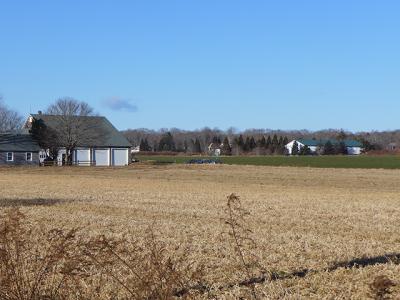Deal Assures Crops Forever on Wainscott Land

With a vote last Thursday, the East Hampton Town Board approved the $4 million purchase of an additional layer of development rights over almost 30 acres of farmland in Wainscott, allowing restrictions to be placed on the land that will permit its use solely for food crop production.
Before the vote, several residents at the town board meeting spoke against the purchase, particularly without first having the soil tested for toxic chemicals. The farmland, on Osborn Lane and Wainscott Hollow Road, and long in the Dankowski family, had previously been used for crops on which agricultural chemicals were commonly sprayed.
Development rights over the land, leaving its title in the Dankowskis’ hands but restricting its use to agriculture, have already been purchased by Suffolk County. But in the first of what could be a number of similar efforts, the town sought to pay for the ability to impose tighter restrictions, delineating just what kind of agriculture could take place.
The restriction in this case has been endorsed by Peter Dankowski, who farms the site. Under the new development rights purchase, if the land remains fallow for two years, the town can step in and lease it to a qualified farmer. If the land is to be sold, it must go to a farmer. The future value of the land will be capped at $25,000 an acre, plus any improvements, in order to keep it affordable in a future sale to another farmer.
The agreement also bars the construction of new barns or other permanent structures, limits the extent and location of temporary structures like hoop houses, and calls for at least 92 percent of the farm to be used to grow food crops.
While supported by other farmers and the Peconic Land Trust at a hearing on the proposed rights purchase last summer, some raised questions about the use of community preservation fund money for such enhanced rights purchases, and about the concept of imposing particular restrictions on what type of agriculture might take place on a site.
